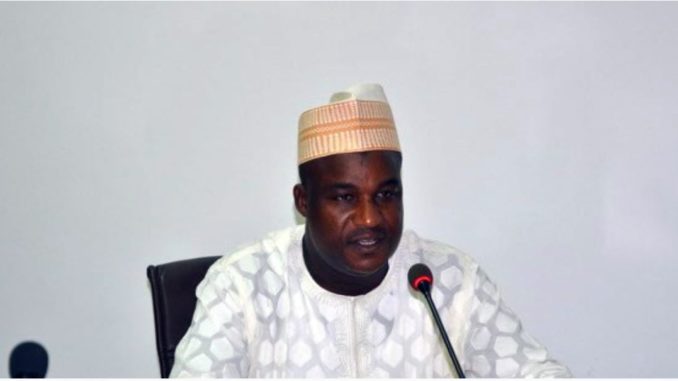
AS Nigerians prepare to elect new leaders at various levels, the burning issue of corruption has been re-ignited by some ongoing charges of graft sticking to a sizeable number of candidates seeking elective offices. While the main anti-graft agency, the Economic and Financial Crimes Commission, has been grappling with many high profile suspects who have deployed wealth, legal luminaries and influence in their own defence, sleaze is thriving at lower levels and hurting the economy. To stamp it out, a new strategy and focus are urgently required.
Petty corruption is alive and well in the Nigerian public service, while attention is largely riveted on the headline-grabbing cases filed by the EFCC against high profile figures. We strongly suggest that the Independent Corrupt Practices and Other related offences Commission should step up its enforcement, targeting pervasive graft in Ministries, Departments and Agencies perpetrated by career public officials.
By informed opinion, petty corruption – perpetual, institutionalised sleaze – drains public resources more than the billions stolen in lump sums by politicians and political appointees who serve for relatively short periods. But in the MDAs, local government offices, including licensing agencies, the airports, seaports, immigration and customs points, billions of naira in illicit payments change hands on a daily basis. In a startling report, the National Bureau of Statistics estimated that Nigerians and expatriates paid civil servants and other public officials up to N400 billion in bribes in a year; this is enough to support the crumbling university system for two years. A dispatch by a Reuters correspondent in August 2017 put it succinctly: “…despite government action to put senior officials accused of graft on trial, Nigerians still have to pay every day for basic services such as dealing with customs or police officers.”
Even if all the high profile executive corruption cases end in jail terms, the systemic graft will continue to deny Nigerians quality public services and drain resources into the pockets of rogue officials. Analysts say that a substantial portion of the oft-quoted figure of $400 billion allegedly drained from the treasury between 1960 and 1999 were filched by career civil servants, the rest by elected and appointed office holders.
The enormity and ubiquity of the sleaze should see the ICPC concentrate on petty corruption, while the EFCC focuses on high profile cases. Currently, both agencies investigate all cases brought to their notice in accordance with the laws that established them that separately give each wide powers to investigate and prosecute corruption and its offenders. This newspaper has for long argued that the anti-corruption war should have a strategy and a coordinator with full presidential backing to ensure success. This gap has exposed Buhari’s assault to serial failures at the courts and inter-agency squabbling, resulting in very few convictions of highly politically exposed persons.
The ICPC can help change that narrative by beaming its searchlight on the Nigeria Customs Service, passport offices, border posts, higher institutions, ministries and administrative offices. An NBS survey, conducted in collaboration with the United Nations and the European Union units, found for instance that policemen were by far the largest group of bribe takers, but in value, customs officers came tops, followed by judges, a very disturbing trend, given the supposed sacredness of the temple of justice. Studies also show pervasive graft in the education bureaucracy and the local governments councils.
According to researchers at Germany’s Max Planck Research Institute, apart from being a strong constraint on growth and development, weak institutions, inefficient public services and cumbersome bureaucracy fuel pervasive corruption in the public service. These result in rent-seeking, low investment, high transaction costs and misallocation of production factors. Incidentally, the government is aware of the parasitic culture in the civil service: in February 2017, Vice-President Yemi Osinbajo, acting as President in Buhari’s absence, described the prevalent subversion of the system for personal gain as “the greatest tragedy” to befall a nation; the acting chairman of the ICPC was succinct in June this year when he blamed civil servants squarely for endemic corruption in the public service, saying; “…politicians are strangers to the service, they won’t succeed if we don’t cooperate with them.”
But impunity thrives because punishment is rare and the rewards of graft outweigh the punishment. Pervasive sleaze discourages investment, squeezes out SMEs and start-ups, the pivots of job creation, industrialisation and exports, and sustains Nigeria’s low rating on the global ease of doing business rankings. Colombia in 2015 introduced polygraph tests for senior officials involved in awarding contracts among other measures, to tame corruption and embezzlement. By 2018, China’s anti-graft agency had ensnared 1.4 million civil servants, with many jailed.
Nigeria should also get serious: if Buhari remains distracted, the ICPC and the EFCC should collaborate to leave most high profile cases to the EFCC and petty or lower level corruption, to the ICPC. Both agencies need proper funding. The National Assembly, as usual, subverts national interest by refusing to screen Buhari’s nominee for the ICPC chairmanship as stipulated by the constitution. There should be scrupulous investigation and prosecution of offenders. Heads of agencies should be screened and those above board integrated into the campaign. The whistle-blowers law should be reactivated and rejuvenated to expose corruption in the public service.
For now, the ICPC should follow through on its wide statutory powers and uproot petty corruption.
END

Be the first to comment